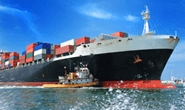Logistics

March 12, 2020
Coronavirus Disrupts Shipping/Port Operations
Written by Sandy Williams
U.S. ports are canceling shifts and closing terminals due to shipping disruption stemming from coronavirus-related production cuts in China. The largest impact is on West Coast ports that serve as primary shipping destinations for Chinese imports. More than half of the volume at the ports of Los Angeles and Long Beach originates from China. Container terminals at the California ports have cut back on work shifts and, as of last week, were operating at about 30 to 40 percent of their normal gate capacity. On the East Coast, the container terminal at the Port of Baltimore was closed on March 5 in response to virus-related shipping disruptions and will close again on March 17.

“The overall economic impact of this type of crisis can easily run into the tens of billions of dollars. Due to the coronavirus outbreak, cargo volumes at many U.S. ports during the first quarter of 2020 may be down by 20 percent or more compared to 2019,” said Chris Connor, CEO and president of the American Association of Port Authorities.
Connor added, “Things will rebound eventually, and indeed we’re hearing news about factories that are coming back on-line in China, and ports there ramping back up to move the cargo.”
Empty containers are piling up at West Coast terminals as fewer vessels call at ports. Maersk Line and Mediterranean Shipping Company are deploying three megaships to the Los Angeles-Long Beach port complex to pick up empty containers for return to Asia.
“In response to the extraordinary number of blank sailings, and the escalating number of empty containers piling up across Southern California, the Port of Long Beach is partnering with ocean carriers to evacuate thousands of empty containers and reposition them to Asia,” said Noel Hacegaba, Long Beach’s deputy executive director and CEO.
The container issue has resulted in an escalation of detention penalties for shippers and truckers who are finding it increasingly difficult to return empty containers to ports. Some ports are restricting hours for drop-off of containers while others are employing an empty-for-full container exchange policy.
Shippers can face daily $150 to $350 demurrage and detention fees assessed by ocean container carriers and marine terminals when they are unable to pick up or drop off containers. Demurrage refers to the time an import container sits at a container terminal and detention relates to shippers holding containers for too long outside the terminals. Truckers argue that it is unfair to be penalized for factors that are beyond their control.
The Harbor Trucking Association is urging the Federal Maritime Commission to address detention penalties and rising chassis charges tied to the coronavirus disease that are inflating administrative costs for truckers.
Port authorities are taking precautions to prevent the spread of COVID-19 from inbound vessels.
“Since ports are a nation’s first line of defense against threats ranging from terrorism to pathogens, they take their role seriously about protecting the safety and well-being of their communities,” says AAPA.






